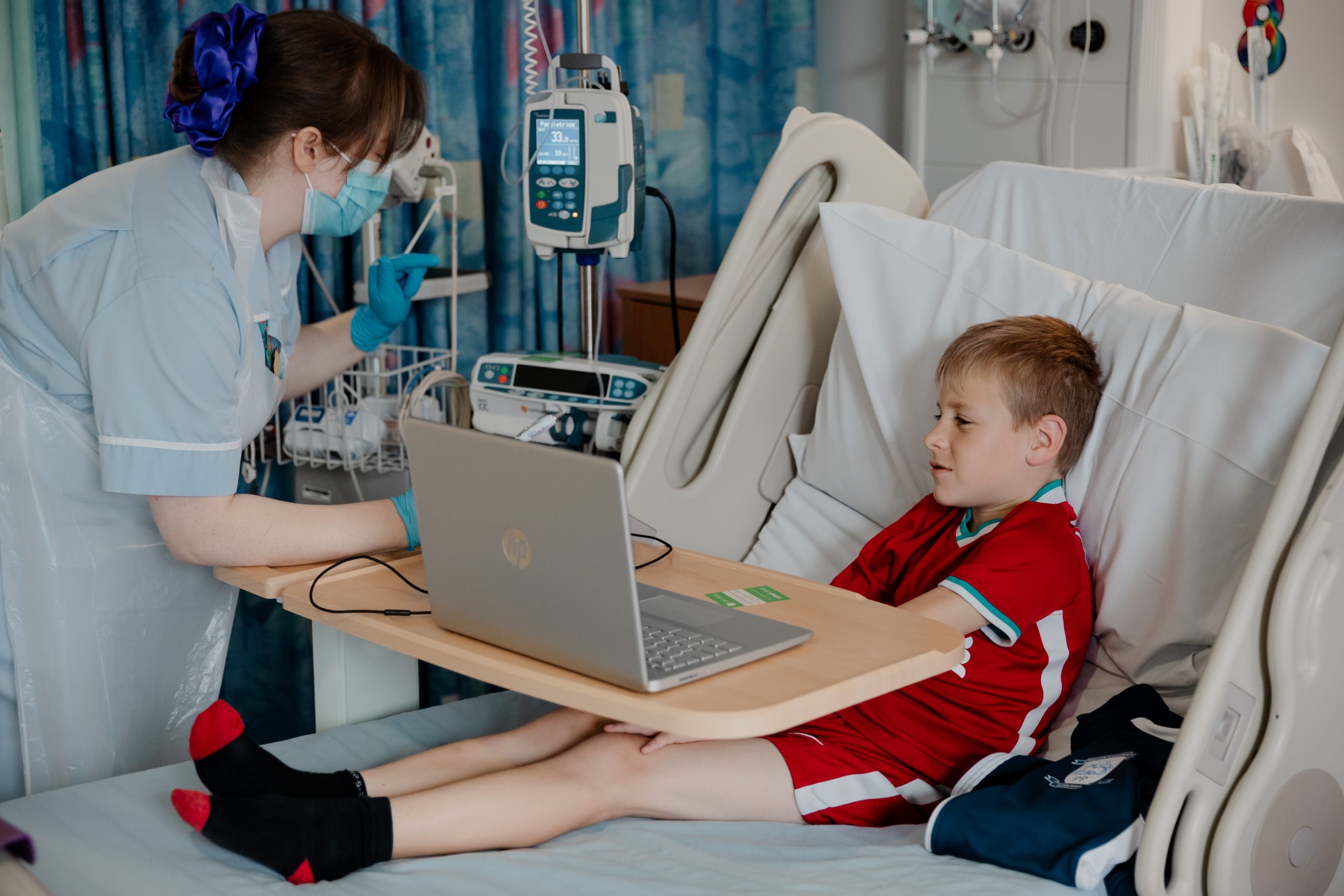
Royal Manchester Children’s Hopsital (RMCH) is run by Manchester University NHS Foundation Trust and is the UK’s largest and busiest children’s hospital.
The Manchester CRF at RMCH was established in 2009 and was the first specialist children’s facility in the North West and is one of only a handful across the UK. We have access to all of the hospital’s state-of-the-art equipment and resources, so children can take part in our research studies alongside on-going treatment. Our experienced staff are specialists in children’s care, with extensive experience in both research studies and clinical practice.
To provide a vibrant, colouorful and engaging environment for our patients and their families, and our staff, the facility has a themes of ‘senses’, with five individually decorated rooms based on five senses; see, smell, taste, hear and feel. Each room reflects the exploratory and researching characteristics of the facility, based on drawings by children treated on the ward.
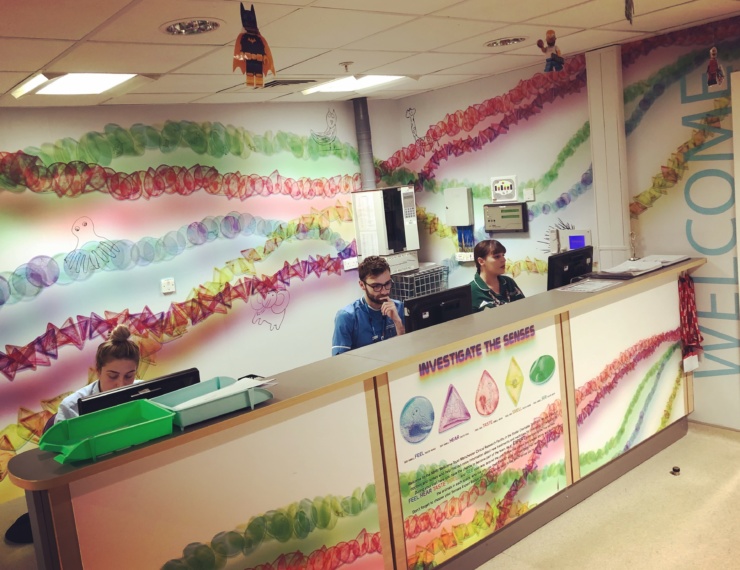
Taking part in research
Why is research for children and young people important?
Previously, many of the medicines prescribed to children had only been tested in adults. Doctors used a series of methods to give new medicines to children, including:
- Off-label – where a dose, which is lower than the adult dose, is prescribed to young people
- Unlicensed – where the medicine is used outside the terms of the licence – e.g. by giving the medicine in a different form to how it was made. (A large tablet may be ground down into powder and mixed with a liquid, to make it easier to swallow).
In 2007, the European Union introduced a legal requirement to ensure that all medicines are researched, developed and authorised to meet the therapeutic needs of children. This requirement was introduced to ensure that suitable, authorised medicines are available for young people, and to reduce the chance of the medicine being ineffective or leading to side effects.
Taking part in a research study will not affect the normal care children receive, and all clinical staff involved in normal care will be aware of participation in the research study. It may also mean that new medication can be prescribed to help with the treatment.
Study lengths and visits
The type of research study children take part it will determine how long their stay at Manchester CRF at RMCH lasts, and the frequency of visits they need to make. Study stays can last from a few hours to several days.
When overnight stays are required we suggest bringing an overnight bag with toiletries, pyjamas and a change of clothes. We also provide pull-down beds at the side of the child’s bed for one parent or carer to stay overnight.
Our Facilities
The treatment room features colourful flower designs, with creatures hidden within the garden scene, designed to help to distract patients when receiving treatment. Patients are also given a sense of control when sitting in treatment chair as they are able to control the ceiling light artwork, 3D clouds and sunlight via a tablet built into the chair.
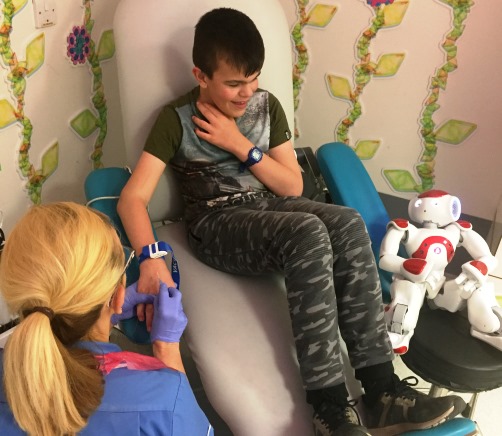
Manchester CRF at RMCH is home to a state-of-the-art audiology booth, with walls treated with sound-absorbent material and its specialist construction cuts out sounds from outside to leave a very quiet space inside. Outside of the room, but connected via a viewing window, is a control room where an audiologist sits.
Working as a team, an audiologist in the control room and an audiologist in the booth, co-operate together to measure the hearing of a child. As this is an unfamiliar space, especially for young children, a parent or carer is welcome to sit within the audiology booth.
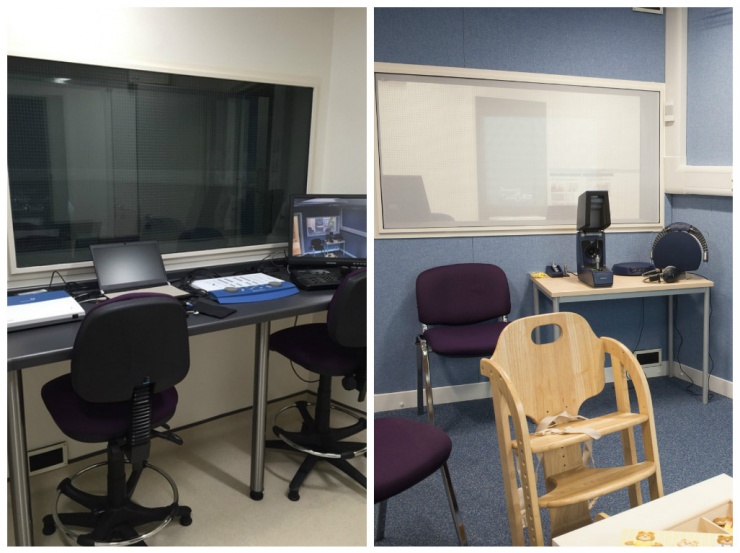
Hearing loss is the most prevalent untreated sensory deficit affecting individuals throughout the lifespan (from infants to older adults), and is the third leading cause of years lived with a disability. The disease burden is widely recognised by the Department of Health and NHS England – who published an Action Plan on Hearing Loss in 2015.
- Every day, three children are born deaf in England;
- 70% of deaf children fail to meet the government target of 5 GCSEs;
- Due to work piloted from Manchester, every UK baby is offered a hearing check just after birth.
A large, bright, spacious play room is available to children and young people of all ages and abilities, who are visiting our children’s clinical research facility throughout their visit.
The play room provides:
- a creative corner
- imaginary play area
- multimedia corner
- a quiet sensory area
- books and music
We provide access to a large selection of toys and games which are age/stage appropriate for all our patients.
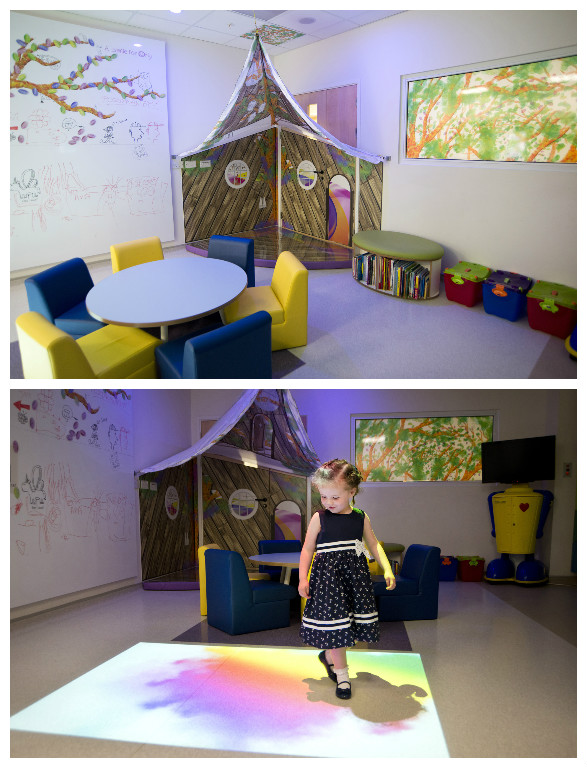
There is a multi-sensory room situated a short distance from the facility allowing patients to experience therapeutic play resources.
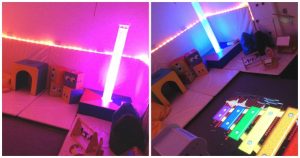
In addition to this, the hospital has a large outdoor play area situated on the roof of the building which offers a variety of bikes, scooters and outdoor activities meeting the needs of all our patients.
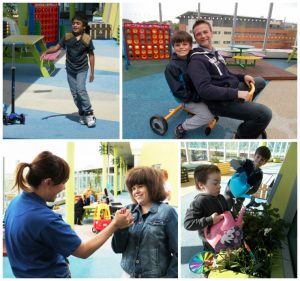
Access to the hospital’s multi-sensory room and outdoor roof garden can be obtained through our Play Specialist.
The play specialist focuses on providing developmental, therapeutic and specialised play techniques for all ages and diversities in an effort to fulfill emotional, social and developmental needs and help alleviate emotional trauma whilst in the hospital setting.
Play specialists are professionally trained to provide distraction, diversional or participation therapies with the child/young person undergoing painful or invasive procedures. They also use preparation and distraction techniques, and provide post-procedural play, as appropriate.
Find out more

